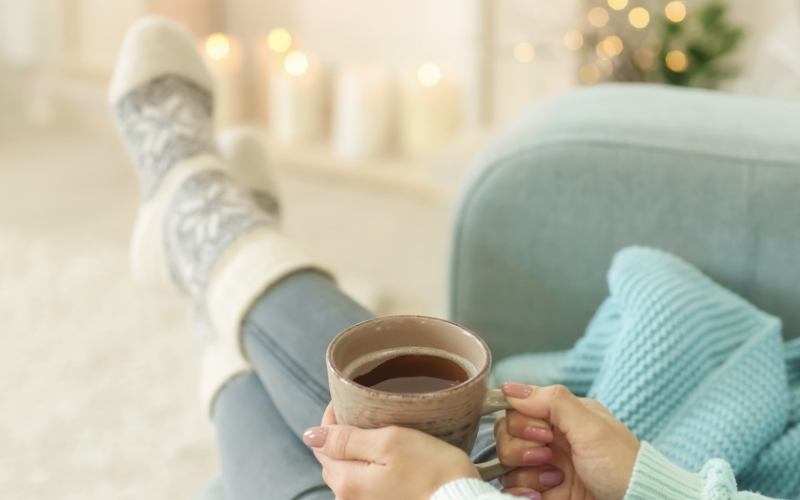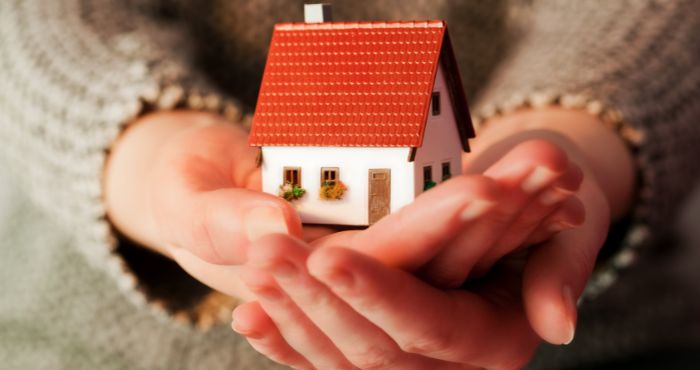Staying Well and Warm in Winter

As we get older it becomes harder for our bodies to detect how cold we are, and it takes longer to warm up.
For older people in particular, the longer the exposure to the cold, the more risk of having health issues and increased accidents at home (associated with loss of strength and dexterity in the hands). That’s why it’s really important for people in later life to stay warm in periods of colder weather.
Here are our top nine tips on keeping well and warm in winter and colder weather periods.
1. Check that your boiler has been serviced ahead of winter and that radiators are in good working order
It’s really important to check your heating system is in good working order before the very cold weather hits. If you think your boiler will need replacing, you may be available to apply for the Boiler Upgrade Scheme (formerly known as the Boiler Grant).
As long as you meet the following criteria you can apply for the Boiler Upgrade Scheme:
- You have a gas boiler that is over eight years old or one that is broken
- You own your own home or are a tenant living in privately rented accommodation
- You’re in receipt of Pension Guarantee Credit
- Are 60 years old or more and receive Working Tax Credit
- Live in England, Scotland or Wales.
For more information on how to apply, visit the GOV.UK website
2. Get your winter vaccinations
Viruses are more common and widespread in the winter so it’s important to keep up to date with your jabs. You're entitled to a free flu jab from the doctor or pharmacist if:
- You're aged 50 or over
- You care for someone, such as a friend or family member
- You have a serious long-term health condition
- You live in the same house as someone who is immunocompromised.
Check with your GP about eligibility for other vaccinations as you might also be eligible for the pneumonia and shingles vaccines.
3. Help to stop the spread of germs
As well as getting vaccinated to help reduce the spread of winter flu symptoms, make sure you regularly wash your hands thoroughly and catch coughs and sneezes in a tissue then dispose of it. Also, avoid unnecessary contact with people who are unwell.
4. Get out your thermal layers
Even if you are staying indoors, keep warm by wearing layers. It’s important to keep your hands and feet warm too to help with circulation.
If you’re going outside, make sure you wear several layers of light clothes - this will keep you warmer than one thick layer as the layers can trap warm air.
5. Use a Warm Space
Warm Spaces is a new initiative where a map is being created of places in the community that are offering a warm and welcoming space. Visit the Warm Spaces website to find a space near you.
6. Draught excluders
This is a fairly cheap and easy way to keep cold draughts out which will help you keep warm and reduce your energy use. We have some tips for being more energy efficient which you may find useful.
7. Keep eating hot meals and drinking warm drinks
Eating helps keep you warm so try to have at least one hot meal a day along with regular hot drinks. You could save money by batch-cooking larger meals and having them throughout the week or freezing them for another day.
If you struggle to prepare your own hot meals, there are companies like Oakhouse and Wiltshire Farm Foods available that deliver freshly-frozen meals to microwave. Your local Council may offer a ‘meals on wheels’ service, you can enter your postcode on the GOV.UK website to find out what is available in your area.
8. Heat your home at a steady temperature for longer
Try to keep your home heated to a steady temperature for longer periods. It actually uses less energy to keep the heating on for a longer period of time than switching on and off.
Switch off the heating in any rooms that aren’t used and draw the curtains as it gets dark to help keep the heat in. If you have curtains above a radiator, you can tuck those into the back of the radiator to help the heat escape into your room. Avoid opening your windows too, especially at night when it’s coldest.
If you’re worried about the costs of your bills, read our advice on reducing your utility bills you could also try the GOV.UK saving energy questionnaire
9. Keep moving as much as you can
This is important for not only your physical but your mental health too. It doesn’t matter what you do to keep active, as long as it’s something you enjoy, is safe to do and you’re comfortable with. We have some further information and advice about staying active in later life >
Want to be prepared for any cold spells?
You can choose to receive cold weather alerts from The Met Office so you can try to prepare for any periods of extreme weather.
Page last updated: September 2023.

